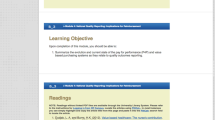Abstract
This paper reports on research investigating student experiences of learning through face to face and online discussions in business and marketing courses in a local self-finance institution. Using methodologies from relational research into university student learning, the study investigates associations between key aspects of student learning focusing on conceptions of what students learn, approaches to learning and learning outcomes. The students’ views on using online discussion platform and the difference in learning performance between students who did use online discussion platform and who did not will be compared in this study. Furthermore, it was expected to find that these differences were reflected in the learning outcomes, that is, student approaches would be linked to more complete conceptions of learning and to better academic performance. In other words, the existence of causal relationships between the using of online discussion platform and academic performance was also explored. Data on students’ conceptions and approaches was collected through group interviews and final marks were used as an indicator of the quality of learning in terms of students’ academic performance.
Access this chapter
Tax calculation will be finalised at checkout
Purchases are for personal use only
Similar content being viewed by others
References
Anastasi, A.: Psychological Testing. Macmillan, London (1982)
Becker, D.A., Dwyer, M.N.: Using hypermedia to provide learner control. J. Educ. Multimedia Hypermedia 3(2), 155–172 (1994)
Biggs, J.: Individual differences in study processes and the quality of learning outcomes. High. Educ. 8, 381–394 (1979)
Biggs, J.: What do inventories of students’ learning processes really measure? a theoretical review and clarification. Br. J. Educ. Psychol. 63(Pt. 1), 3–19 (1993)
Biggs, J.: Approaches to learning: nature and measurement of. In: Husen, T., Postlethwaite, T.N. (eds.) The International Encyclopedia of Education, vol. 1, 2nd edn, pp. 318–322. Pergmon, Oxford (1994)
Bull, J., McKenna, C.: Blueprint for Computer-Assisted Assessment. Routledge-Falmer, London (2004)
Cano, F.: Epistemological beliefs and approaches to learning: their change through secondary school and their influence on academic performance. Br. J. Educ. Psychol. 75, 203–221 (2005)
Ellis, R.A., Calvo, R.A.: Learning through discussions in blended environments. Educ. Media Int. 40, 263–274 (2004)
Floridi, L.: Internet: Which future for organized knowledge, Frankenstein or Pygmalion? Int. J. Hum. Comput. Stud. 43(2), 261–274 (1995)
Greenwald, R., Hedges, L.V., Laine, R.D.: The effect of school resources on students achievements. Rev. Educ. Res. 66(3), 361–396 (1996)
Guzdial, M., Turns, J.: Effective discussion through a computer-mediated anchored forum. J. Learn. Sci. 9(4), 437–469 (2000)
Hew, K.F., Cheung, W.S.: Higher level knowledge construction in asynchronous online discussions: an analysis of group size, duration of online discussion, and student facilitation techniques. Instr. Sci. 39, 303–319 (2011)
Hew, K.F., Cheung, W.S., Ng, C.S.L.: Student contribution in asynchronous online discussion: a review of the research and empirical exploration. Instr. Sci. 38(6), 571–606 (2010)
Huynh, M.Q.: Viewing e-learning productivity from the perspective of Habermas’ cognitive interests theory. J. Electron. Commer. Organ. 3(2), 33–45 (2005)
Johnson, S.: Everything Bad is Good for You: How Today’s Popular Culture is Actually Making us Smarter. Allen Lane, London (2005)
Jones, S., Johnson-Yale, C., Millermaier, S., Perez, F.S.: Academic work, the internet and U.S. college students. Internet High. Educ. 11, 165–177 (2008)
Jung, I., Choi, S., Lim, C., Leem, J.: Effects of different types of interaction on learning achievement, satisfaction and participation in web-based instruction. Innovations Educ. Teach. Int. 39(2), 153–162 (2002)
Ketelhut, D.J., Schifter, C.C.: Teachers and game-based learning: improving understanding of how to increase efficacy of adoption. Comput. Educ. 56, 539–546 (2011)
Lee, S.W.Y., Tsai, C.C.: Students’ perceptions of collaboration, self-regulated learning, and information seeking in the context of internet-based learning and traditional learning. Comput. Hum. Behav. 27, 905–914 (2011)
Love, N., Fry, N.: Accounting students’ perceptions of virtual learning environment: Springboard or safety net? Account. Educ. Int. J. 15(2), 151–166 (2006)
Mayes, T.: The technology of learning in a social world. In: Harrison, R., et al. (eds.) Supporting Life Long Learning: Volume 1 Perspectives on Learning, pp. 163–175. Routledge Falmer, London (2002)
Mazzolini, M., Maddison, S.: When to jump in: the role of the instructor in online discussion forums. Comput. Educ. 49, 193–213 (2007)
McFarlane, A., Sparrowhawk, A., Heald, Y.: Report on the educational use of computer games. Teachers evaluating education multimedia report. http://www.teem.org.uk/resources/teem_gamesined_full.pdf. Accessed 13 March 2015
National Science Council: 2005-2006 e-Learning in Taiwan. National Science & Technology Program Office for e-learning, Chungli (2006)
Rahman, S., Yasin, R.M., Yassin, S.F.M., Nordin, N.M.: Examining psychological aspects in online discussion. Procedia Soc. Behav. Sci. 15, 3168–3172 (2011)
Shin, N., Sutherland, L.M., Norris, C.A., Soloway, E.: Effects of game technology on elementary student learning in mathematics. Br. J. Educ. Behav. 27(6), 2067–2077 (2012)
So, H.J.: When groups decide to use asynchronous online discussions: collaborative learning and social presence under a voluntary participation structure. J. Comput. Assist. Learn. 25, 143–160 (2009)
Stacey, E., Gerbic, P.: Teaching for blended learning: research perspectives from on-campus and distance students. Educ. Inf. Technol. 12, 165–174 (2007)
Yi, M.Y., Hwang, Y.: Predicting the use of web-based information systems: self-efficacy, enjoyment, learning goal orientation, and the technology acceptance model. Int. J. Hum. Comput. Stud. 59(4), 431–449 (2003)
Zhan, Z., Xu, F., Ye, H.: Effects on an online learning community on active and reflective learners’ learning performance and attitudes in a face-to-face undergraduate course. Comput. Educ. 56(4), 961–968 (2011)
Author information
Authors and Affiliations
Corresponding author
Editor information
Editors and Affiliations
Rights and permissions
Copyright information
© 2015 Springer International Publishing Switzerland
About this paper
Cite this paper
Ng, K.K., Luk, C.H., Wang, F.L., Luk, L. (2015). The Impact of Online Discussion Platform on Students’ Academic Performance. In: Cheung, S., Kwok, Lf., Yang, H., Fong, J., Kwan, R. (eds) Hybrid Learning: Innovation in Educational Practices. ICHL 2015. Lecture Notes in Computer Science(), vol 9167. Springer, Cham. https://doi.org/10.1007/978-3-319-20621-9_16
Download citation
DOI: https://doi.org/10.1007/978-3-319-20621-9_16
Published:
Publisher Name: Springer, Cham
Print ISBN: 978-3-319-20620-2
Online ISBN: 978-3-319-20621-9
eBook Packages: Computer ScienceComputer Science (R0)




